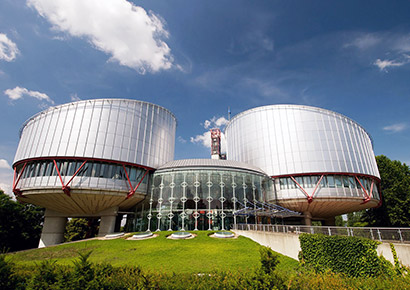Human Rights Court rules Russian ‘gay propaganda’ laws breach human rights
 In a landmark ruling, the European Court of Human Rights (ECHR) has declared that Russia’s so-called ‘gay propaganda’ laws are a violation of human rights.
In a landmark ruling, the European Court of Human Rights (ECHR) has declared that Russia’s so-called ‘gay propaganda’ laws are a violation of human rights.
In the decision, issued on Tuesday, the Strasbourg-based court said that the laws breached the European Convention on Human Rights with regard to freedom of expression and the prohibition of discrimination.
President Putin signed a federal law in 2013 prohibiting the promotion of “non-traditional” sexual relationships to minors, emulating other similar local laws. The laws have been used to ban LGBTQ Pride events and demonstrations and to restrict the positive depiction of LGBTQ people in public, on television, in print and on the internet.
The court said in a statement that, “although the laws in question aimed primarily at protecting minors, the limits of those laws had not been clearly defined and their application had been arbitrary”.
It found that the way the laws had been applied had also “been discriminatory and, overall, served no legitimate public interest”.
The ECHR added: “Indeed, by adopting such laws the authorities had reinforced stigma and prejudice and encouraged homophobia, which was incompatible with the values of a democratic society.”
Six in a panel of seven judges agreed with the ruling, while a seventh judge, Dmitry Dedov from Russia, did not.
The ruling is an “absolute victory”
“The message from Strasbourg is loud and clear. LGBTI people deserve equality, are not a threat, and cannot be forced to hide away,” commented ILGA-Europe Executive Director Evelyne Paradis. “This is a vital decision, not only for LGBTI and human rights activists working in Russia. It sends a key message to activists in other countries who are pushing back against similarly restrictive legislative proposals.”
The judges ordered Russia to pay the three applicants a total of EUR 43,225 in damages and to pay EUR 5,963 for costs and expenses.
Activist Nikolai Alekseev, one of the applicants in the case, described the ruling as an “absolute victory” and revealed that he had immediately notified Moscow City Hall of a planned LGBTQ march, which it has repeatedly banned in the past.
Alekseev said the city’s response to his application would be the “first test of implementation of today’s decision of the European Court”.
The Russian Ministry of Justice quickly reacted to the ruling, claiming that the laws were intended “to defend morality and children’s health” and not to discriminate against LGBTQ people. It also said that it would appeal the ruing.
According to ILGA-Europe, the judgment is binding on Russia and can be used by individual applicants in domestic cases who have been charged with similar infringements of the ‘gay propaganda’ laws.
Leave a Reply